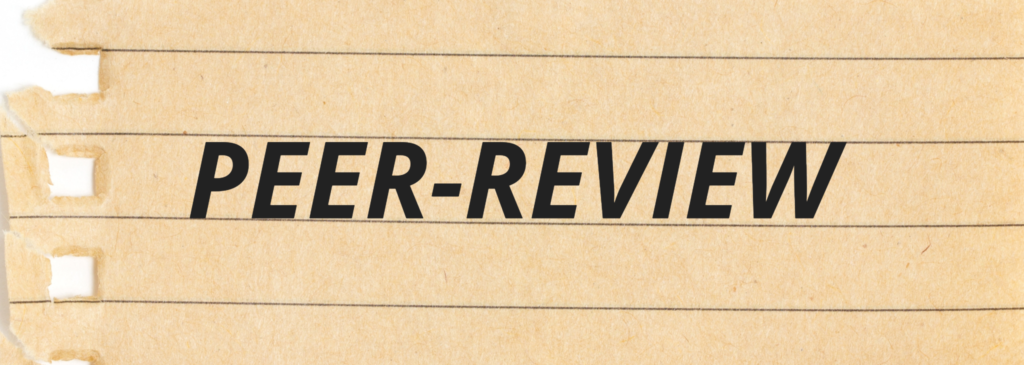Peer review: The critical assessment of scientific findings

Overview:
- Definition: Peer review
- Relevance of the peer review process
- 7 steps in writing a peer review
- Methodology
- Frequently asked questions / FAQ
- Criticism of the peer review process
Definiton: Peer review
Peer review is a process in which scientific work is reviewed by independent experts. These reviewers, also known as peers, assess the quality, methodology and validity of the research results before they are published.
Relevance of the peer review process
The peer review process ensures that scientific findings are subjected to critical examination by specialist colleagues. This ensures the quality and reliability of research, and errors and shortcomings can be identified and improved. It is an essential component of scientific progress and quality assurance.
7 steps in writing a peer review
Writing a peer review can be done in seven steps:
- 1. list core elements
- 2. assess the research question/hypothesis
- 3. check methodology
- 4. evaluate structure
- 5. evaluate source work
- 6. evaluate clarity
- 7. consider argumentation structure
These steps help to analyze the most important aspects of the work and provide constructive feedback.
Methodology
Methodology refers to the systematic approach used in a scientific study or research work. It includes the specific procedures, techniques and tools used to collect, analyze and interpret data. The methodology sets the framework for how the research question is answered and how the results are obtained. A sound and appropriate methodology is crucial to ensure the credibility and validity of a scientific study.
Frequently asked questions
Where can I see whether an article is peer-reviewed?
Most scientific journals indicate whether they have undergone a peer review process. This is usually indicated on the journal’s website, in the masthead or in the author guidelines. In addition, the indication “peer-reviewed” can be found on the article itself or in databases such as PubMed.
How do you write a review article?
Writing a review article requires a comprehensive literature search, a critical evaluation and summary of existing research findings on a particular topic, and a clear and structured presentation. It is important to cite the sources carefully and to justify your conclusions well.
What other types of reviews are there?
In addition to the traditional peer review, there are also other types of reviews, such as systematic reviews, meta-analyses, literature reviews and Cochrane reviews. These differ in their methodology and objectives, but all serve to summarize and evaluate the current state of knowledge on a specific topic.
Where can I get help with scientific texts?
There are various ways to obtain support for academic texts. Universities and research institutions often offer writing centers or editing services. There are also professional editors and proofreaders who can help optimize the language and content of scientific texts.
Criticism of the peer review process
Subjectivity: The assessment of scientific papers by reviewers is subjective and can be influenced by personal preferences, bias or differences of opinion. This can lead to unequal treatment of authors and a bias in the assessment.
Time and resource constraints: The peer review process can be time-consuming and requires significant human resources. This can lead to long waiting times for authors and slow down the publication process.
Conservatism and inhibition of innovation: The peer review system often favors established ideas and paradigms, which can disadvantage innovative approaches or controversial ideas. This can hinder scientific progress and limit new findings.
Quality deficiencies: Despite the peer review process, poor quality or faulty work can slip through and be published. The overload of reviewers and limited time resources can lead to an inadequate review.
Confidentiality and lack of transparency: The peer review process is often non-transparent, as the reviewers’ assessments and comments are treated confidentially. This makes it difficult to review and understand the assessments.
Competition and conflicts of interest: In some cases, reviewers or editors may have personal or institutional interests that could influence their reviews. This can lead to a lack of objective and independent review.
It is important to take these criticisms into account and to continuously improve the peer review process to ensure a fairer, more transparent and more effective review of scientific work.